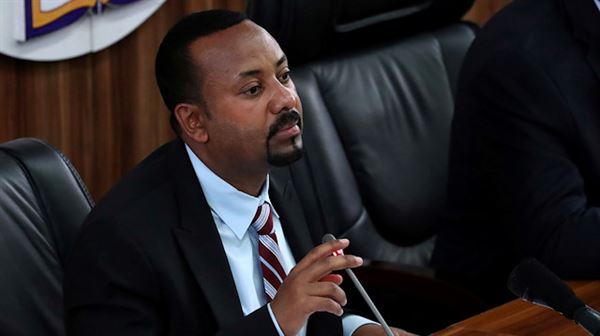Seven political parties operating in Ethiopia's two most populous regional states of Oromia and Amhara have resolved to work together to quell the rag
Seven political parties operating in Ethiopia’s two most populous regional states of Oromia and Amhara have resolved to work together to quell the raging ethnic clashes, they said in a joint statement on Friday.
They made the resolve after the parties met with Prime Minister Abiy Ahmed with whom they discussed ways of arresting the violence and chart out a way forward.
“The recent clashes caused the destruction of churches and mosques,” the parties said in a joint statement at a news conference held by the prime minister’s office.
Three university students were killed in ethnic-based clashes that erupted in universities in Oromia and Amhara regional states while fresh ethnic clashes caused considerable injuries and property damage in Dire Dawa, a multi-ethnic city in eastern Ethiopia.
“This dangerous trend that contravenes the values both of the Oromo and Amhara peoples should immediately stop,” said the statement.
“We have agreed to work together to reverse the threat posed against the people,” it said adding that the ongoing violent acts could potentially weaken the bonds that tied the two largest ethnic groups for centuries.
The government should take measures against instigators and those who participate in violent acts, the statement said.
“We will support the government in its efforts to maintain peace and order,” it added.
Professor Merera Gudina, a renowned political scientist and leader of the political party Oromo Federalist Congress, on the occasion said: “Activists should take it upon themselves not to over step the red line”.
He was referring to Jawar Mohammed, a high profile activist, and others who have been airing reckless, ethnically loaded messages to their support bases via social media.
Last month, 84 people were killed in ethnic clashes that erupted after Mohammed sent an alarming message to his supporters that he was about to be arrested — a claim the federal police rejected.
Jawar’s supporters, mostly single teenagers known as Qeeros, blockaded major roads including in the outskirts of the city of Addis Ababa after Jawar’s call for help.
Ethnic based violence has recently been a major concern for the country, a problem that has shown no sign of stopping after the Nobel Laureate prime minister came to the helm on April 2, 2018.
Dawud Ibsa, chairman of the Oromo Liberation Front-Shene, said on his part: “No one who instigates violence should be spared, they should be taken into account”.
